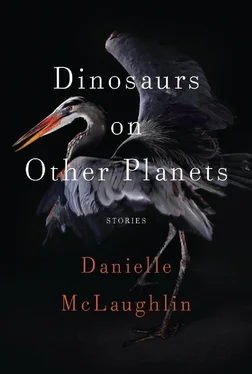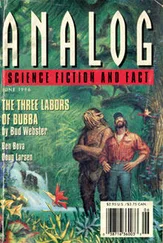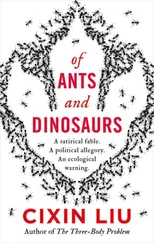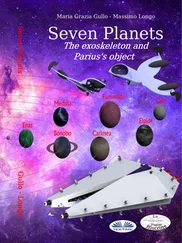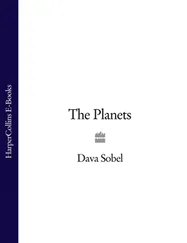—
YEARS LATER, ON A trip home for a conference, I took a detour in a hired car and tried on impulse to find the lake, taking out the map provided by the rental company, guessing at the route we might have taken that day. Eventually I arrived at a pool of dark water that I knew wasn’t it, but I stayed awhile nonetheless, and then, knowing I wouldn’t try anymore, I drove back to the airport, gave back the car, and boarded my plane. I was teaching at a college in the American Midwest by then. Lou Anne had sold the house in Drumcondra the year after Cassie died and had bought a small house in County Clare. She was closer to my mother geographically now, but they rarely visited each other, although they continued to exchange Christmas cards. My mother said that Lou Anne asked after me in these, though I never pressed her on the details.
I moved out of the house in the weeks after the accident, as did Marcus, though he and I didn’t keep in touch. I saw him once, a couple of years later, on a street in Temple Bar, clean shaven and in a suit. He was standing in the doorway of an office building with a number of other men in suits. He quickly looked at the ground as I passed, and I was glad that he did. It’s rarely I think of him now, but to this day I can’t hear Debussy without a tightening in my throat. Once, preparing to go into a meeting in Denver, I had to slip away to the restroom and lock myself in a cubicle for ten minutes having been ambushed by the piped Muzak of the elevator. What returns from time to time, though I wish it wouldn’t, is that afternoon playing ball on the patio outside the house on Drumcondra Road. It lingers beneath the surface, quivering like a small but troublesome cyst. The dry October day, Cassie, the ball, the little clouds of dust; and Lou Anne looking down from the upstairs window, a sadness, a disappointment, in her face that at the time I attributed to the ruined terra-cotta planter, but which I now know was something else entirely.
It was a little after seven a.m., and outside in the garden her nine-year-old son, Finn, was stringing a tennis net between two trees, stringing it not in the normal fashion, the way one might to play tennis, but horizontally, like a hammock. He was wearing a pair of too-short trousers, perhaps the trousers from last year’s school uniform, and no shoes. The grounds on this side of the property were ragged but pretty, bounded by a low stone wall that allowed views across the fields to the gray slate roofs of Portlaoise. “I think it might’ve been a mistake to tell him about the ducks,” Bill said.
“It’s not about the ducks,” she said. “If it wasn’t the ducks, it would be something else.”
They were having coffee in a room at the front of the house, a high-ceilinged, corniced room that she continued to think of as the dining room, though two years on, it remained unfurnished, apart from a small mahogany table they’d brought from their old house and two faux Queen Anne chairs. The room was long and narrow, with a south-facing bay window and another, smaller window overlooking the side garden, where their son was going back and forth between trees, checking and double-checking his knots. He’d found the net in the shed. It wasn’t their net, though she supposed it must be now; it had come with the house, and had belonged to one or other of the people who had owned this place before them. Finn had commandeered it for the purpose of catching dead, or soon to be dead, birds. Birds, it seemed, were the next great heralds of the apocalypse, and Finn had decided it was important to catch them in the act of falling. Before the birds, there had been two long weeks of insects: a meticulous recording of spiders, flies, and beetles, tallies of the dead entered each night in a blue-lined copybook.
Bill left the window and came to sit beside her at the table. He was wearing an old shirt from his banking days — old but expensive, a Lanvin pinstripe with double cuffs, crumpled because he’d slept in it the night before — and a pair of tracksuit bottoms. He’d stopped getting his hair cut, and now it hung limp and slightly graying just below his ears.
“Will you take Finn to school today?” she said. It was half inquiry, half request.
“We’ll see,” he said. “We don’t want to rush things, do we?”
He took one of the books from the floor beside his chair. It was one she hadn’t seen before, a hardback with a picture of an elaborately ornate Karyōbinga on the cover, and she looked away to spare herself seeing the price. They were all over the house, these books — and journals, too — little dog-eared towers of them in the bathroom and next to their bed, copies surfacing randomly on kitchen shelves and windowsills. They were about art, mostly: Oriental art, Japanese antiquities, Muromachi paintings, wooden carvings detailed with gold leaf and lacquer. They were the kind of books she might once have bought for herself, books she could still possibly take pleasure in were they not so hideously expensive.
“It’s been almost a month,” she said. “He needs to go back to school. His suspension ended over a week ago.”
Bill didn’t answer immediately. Instead, he turned a page with ceremonial reverence, lifting the glossy paper, letting it fall, smoothing a hand across a monotone print depicting a line of leafless trees fronting a temple. “I don’t think he’s ready,” he said. He gestured toward the garden, where Finn was leaning into the net, resting his weight on it, testing it. “Look at him. Isn’t he happy?”
Her coat was on the back of her chair, and she took it, draped it across her shoulders. It was cold, this room, even in April, even with the chimney blocked up and insulating tape sealing the splintered frames of the sash windows — the original windows, as the auctioneer had pointed out, practically salivating at the sheer oldness of it all, as she had, too, back then. It was easier for Bill if Finn didn’t go to school, she thought — that way he didn’t have to walk with the child to the bus stop and then ride the bus with him into town, didn’t have to make his way back only to repeat the journey when school finished in the afternoon.
“Astonishing, when you consider it,” he said. “The deep recession into space.”
“Sorry?” she said, before realizing that he was talking about something in the book. He was off then, feeding her random pieces as he read, while she ate a slice of toast and drank her coffee. Above the table, a lead-crystal chandelier hung like a tree in winter, most of its pendants missing. She should take it down and be done with it, she thought. She should put it out in the shed with the rest of the rubbish and pick up something in IKEA. She’d imagined a life for the people who’d lived here before, had pieced it together from the things they’d left behind — the skeleton of a pony trap, its metal spine rusting at the back of the shed, the stone hot-water jars. But it occurred to her now that perhaps she’d gone about it wrong, that perhaps they were not to be known by what they left but by what they took, in which case she would never know them. Outside the window, Finn was throwing stones of varying size into the center of the net. “If you do decide to take him to school,” she said, “I found his school tie when I was tidying the playroom. It’s hanging in his wardrobe.”
“Okay,” he said, without looking up, and she knew there would be no school for Finn today.
—
THIS IS WHAT SHE’D told Finn about the ducks: Yesterday, in Stephen’s Green, the ducks on one of the ponds had died, the smaller pond with the gunmetal green railings by the side exit to the shopping center — not one or two of the ducks but all of them. She’d seen them as she cut through the park on her way to the office, stopping where a small crowd had gathered. And Bill was right — it was no story for a child, especially not this child, so sensitive that sometimes she thought the very passage of air around him might strip the skin off him. But she’d arrived home late, and tired, and, on entering the kitchen and seeing them together in easy silence at the table, she’d felt a need to announce herself, to offer something that might allow access to their world. And so she’d unleashed it, the story of the ducks, how some were almost wholly submerged, just the tip of a wing or a tail feather breaking the surface of the water, while others lay on the muddy bank, their jeweled heads pressing beak-shaped indents into the silt. One had made it onto the grass and lay toppled beneath the spiked branches of a hawthorn bush, and she knew that if she touched it, it would still be warm. All the time she was talking, Finn was looking at her, and she could almost hear the thoughts whirring inside his head. Bill had raised an eyebrow as he dished out mashed potatoes and peas, the only dinner that Finn could be persuaded to eat. She’d looked toward the oven to see if perhaps he had cooked something else for her. He’d followed her gaze. “I could do you an egg if you like,” he’d said.
Читать дальше
